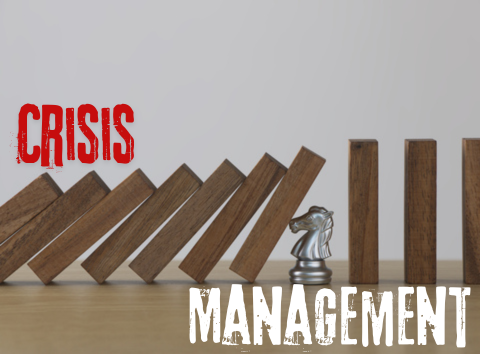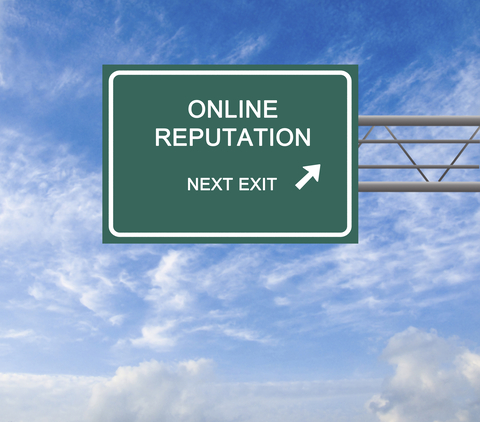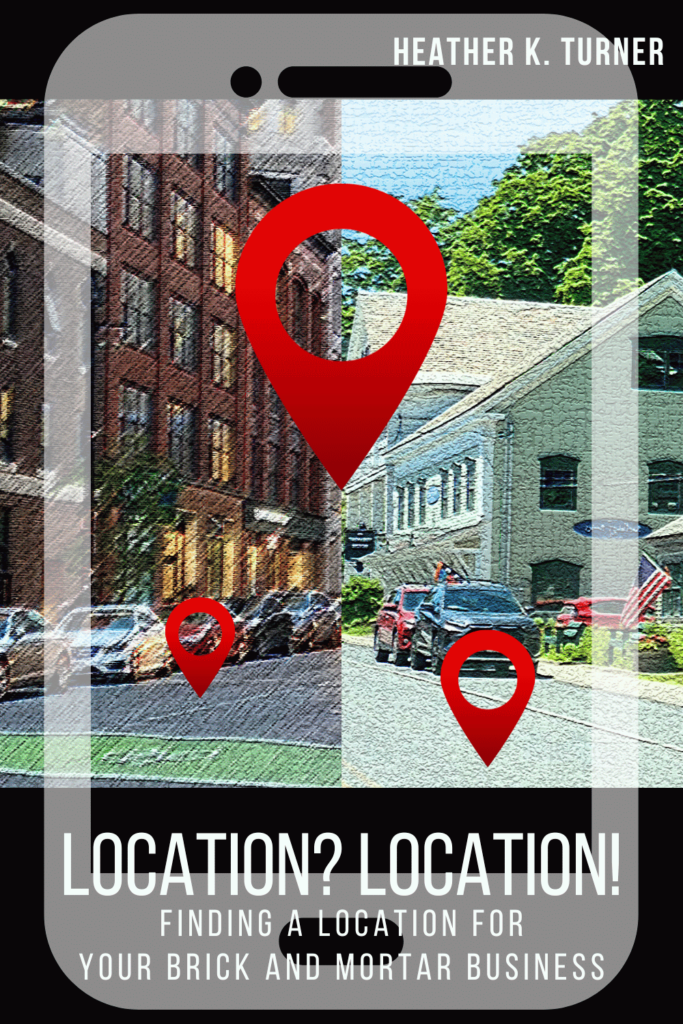by Heather T. | Aug 30, 2024 | Business, Marketing, Observations, Operations, Reputation Management
 Back in February of 2020, I wrote a post about a crisis management plan for social media (A Social Media Strategic Plan for Crisis. An Outline for Bed and Breakfasts and Other Businesses) I had written it a few years back for a business client and yesterday did a workshop on Reputation Management and was going to share the checklist I had made up.
Back in February of 2020, I wrote a post about a crisis management plan for social media (A Social Media Strategic Plan for Crisis. An Outline for Bed and Breakfasts and Other Businesses) I had written it a few years back for a business client and yesterday did a workshop on Reputation Management and was going to share the checklist I had made up.
In reviewing it, a LOT has changed in just four years (Yikes!), so I updated it with some new information, and wanted to put the new version out there so if it’s useful to anyone, I hope it is of help.
My feeling is that with all the shoot first and ask questions later (i.e. “your business did this” and it’s a hot button for people, but that may not be actually the real story) that goes on in social media and online reviews and discussion, it’s better to be prepared in case something does happen, with the hope it never does, then try to scramble to regroup after the fact.
Please keep in mind the reference links to Facebook and other social links change every few years, but they are up to date as of now. In the future, if a link has moved, it’s best to go into every platform’s help section and search for the topic and you will typically find an updated link.
The Chess Piece
The horse chess piece image speaks to me about this topic because the piece is probably, in my opinion, one of the strongest and can be used the most strategically, and it moves the most unconventionally compared to the other pieces. Many chess players consider it as a key piece in winning a game, but can also be one of the weakest. Because knights are bound by a fixed number of movements, they are particularly vulnerable to traps.
When dealing with an online social media crisis, a business can be the knight that saves itself or it can fall into the trap of handling things not the right way, making things worse OR getting complacent and thinking a crisis has passed and stops monitoring, or stops being prepared to deal with if is not “done”.
You can download the plan in (PDF) Social Media Strategic Plan for Crisis or MSWord Social Media Strategic Plan for Crisis or Google Docs (make a copy or download) Social Media Strategic Plan for Crisis. This is an outline and checklist to be changed, or tweaked as needed, and to customize it to your own business.
by Heather T. | Aug 10, 2021 | Operations, Reputation Management, Social Media
 Unfortunately, yes you probably should, but before anyone yells, “invasion of privacy,” I mean the public face of your employee’s social media, so what they post on public forums, Facebook pages, and groups, Twitter, Instagram, etc. You legally can’t ask them for passwords and access to closed accounts, so I wouldn’t recommend it.
Unfortunately, yes you probably should, but before anyone yells, “invasion of privacy,” I mean the public face of your employee’s social media, so what they post on public forums, Facebook pages, and groups, Twitter, Instagram, etc. You legally can’t ask them for passwords and access to closed accounts, so I wouldn’t recommend it.
This periodically comes up when I see employees posting negative content about their employers or, even worse in the case of a boutique hotel many years ago in Maine, posting about guests, by name!
One of my favorite examples is the infamous Damian Cardone, who almost caused the restaurant he worked at to close down because of his public Facebook comments about serving gluten dishes to gluten free guests. And this wasn’t Tavern on the Green, but the restaurant he was working at when he made the posts.
I know it’s one more thing to do on top of trying to do your regular marketing, plus run a business, But…. If any employee’s posts can very negatively impact your business, it’s worth periodically double-checking. Loss of income, especially now, is never a good thing.
Yesterday on a local very active Facebook forum with over 18 thousand members, someone posted a picture of a few people picketing about their workplace’s new mask mandate. Whether you wear a mask or not, or believe we should be vaccinated or not, I’m not going to comment. As someone who last year lost several relatives and friends to Covid, I think you can probably tell where my thoughts lie, and I’ll leave it at that.
On the post, a very vocal young woman was ranting about not getting the vaccine and refusing to wear a mask, and when you hover over her post, you can see where she works.
As someone quite concerned about safety, especially with the Delta variant circulating, this was quite disturbing. She presently works at a local convience store (with the town listed on her profile), and even worse, is a housekeeper/cleaner at a large lodging facility (business name listed on profile). I certainly know I won’t be visiting that local convience store anytime soon nor booking a room at the facility which is in a neighboring state. Which, according to their website has both a mask mandate and an employee vaccination mandate.
I think other people may have commented/messaged both her, and possibly her workplaces about this already because she had removed the information about employment from her Facebook profile as of this morning. I did not report this, but was seriously thinking about it which is why I looked, but someone or someone(s) apparently already did. And I think they posted on the Facebook Business lodging pages reviews tab as well, which was public yesterday, because the review tab is now hidden.
So how many people have those businesses potentially lost or people who have now a negative opinion of the business? Even one is a potential lost customer and loss of revenue and future revenue. From this reference point, on this forum of 18K people, this thread already has 199 comments and who knows how many hundreds or perhaps a thousand or more people have read the post AND the comments and perhaps also saw who this person who ranted worked for…. Food for thought….
If your business falls on that side of the fence where you don’t care if you dissuade people from using your business (for whatever reason), that’s your prerogative and nothing I say or anyone else says will change your mind, so be it. But if you care about your business’s reputation, you should be keeping an eye out.
Sadly, Covid, masking and vaccinations are not the only reason, and the only time, you should be monitoring your employee’s public-facing posts. I have documented hundreds of instances where employees are publicly badmouthing employers, managers, and the businesses that they work at. Great examples for reputation management workshops and I do try to be cognizant of not sharing names of people or businesses unless they are permently closed, like Union Street Guest House, not a case of an employee misstepping online, but instead the owner’s misstepping, but a perfect example of what can backfire online and come back to haunt a business.
This boils down to essential reputation management of your business, where you should be monitoring what people are saying about your business, whether its customers, guests, clients OR employees.
I’d recommend you check your state for what is allowable and what is not in terms of social media and access, as well as specifics on what you are allowed to view on your own company’s computers in regards to employee’s social media. I’d also recommend checking what is considered just cause for termination or fines for employee’s posts.
Posting about bad working conditions or harassment at work falls into personal postings that can’t, and in most cases shouldn’t, be a fireable or finable offense. If an employee is tweeting about being harassed at work, as an employer, you need to look into this pronto, not punish the employee. I’d recommend reading Can You Get Fired if Your Boss Doesn’t Like What You Post on Social Media? from Jackson Spenser Law Group.
NOLO also has a good overview by state, but I would check on your state government-specific website for specifics and the most up-to-date laws as they do change when asking about permissible information to ask and have access to in regards to employee personal accounts.
As a business owner, setting up Google Alerts (free) for your personal name and your business name is suggested. Putting the information in quotes will give you better results.
Periodically doing a Google and Bing search for your personal name and your business name is also suggested (again putting in quotes gives you more specific results), Google Alerts and even the other paid monitoring tools don’t catch 100%.
In terms of employees, before hiring, take a gander at their social accounts (the public side) before hiring. Over 70% of employers do look at that information before hiring, and I have many clients that will ask me to take a look at possible employees who are applying and see what I can find. Considering I’ve found public posts about drinking on the job, stealing products from a current workplace and a lot more that for an emploer would raise some big red flags. It’s scary what’s out there and what people will post publicly.
A tip on looking for a potential employee’s or current employee’s public-facing social media accounts, most people use the same handle or username across most platforms.
Know the law before acting on something that an employee posted. And protect yourself by being proactive; your own business reputation can be at risk. And loss of revenue as well.
From an employee’s perspective, consider what you are posting and where, and who can see it, and the potential repercussions. If you don’t care, again just like an employer’s prerogative to post or believe what they want, that is entirely up to you, but if it meant the potential loss of a job, only you can decide whether it’s worth it or not. If it’s harming the business you work for, that IS on you.
 Back in February of 2020, I wrote a post about a crisis management plan for social media (A Social Media Strategic Plan for Crisis. An Outline for Bed and Breakfasts and Other Businesses) I had written it a few years back for a business client and yesterday did a workshop on Reputation Management and was going to share the checklist I had made up.
Back in February of 2020, I wrote a post about a crisis management plan for social media (A Social Media Strategic Plan for Crisis. An Outline for Bed and Breakfasts and Other Businesses) I had written it a few years back for a business client and yesterday did a workshop on Reputation Management and was going to share the checklist I had made up.
 Unfortunately, yes you probably should, but before anyone yells, “invasion of privacy,” I mean the public face of your employee’s social media, so what they post on public forums, Facebook pages, and groups, Twitter, Instagram, etc. You legally can’t ask them for passwords and access to closed accounts, so I wouldn’t recommend it.
Unfortunately, yes you probably should, but before anyone yells, “invasion of privacy,” I mean the public face of your employee’s social media, so what they post on public forums, Facebook pages, and groups, Twitter, Instagram, etc. You legally can’t ask them for passwords and access to closed accounts, so I wouldn’t recommend it.
